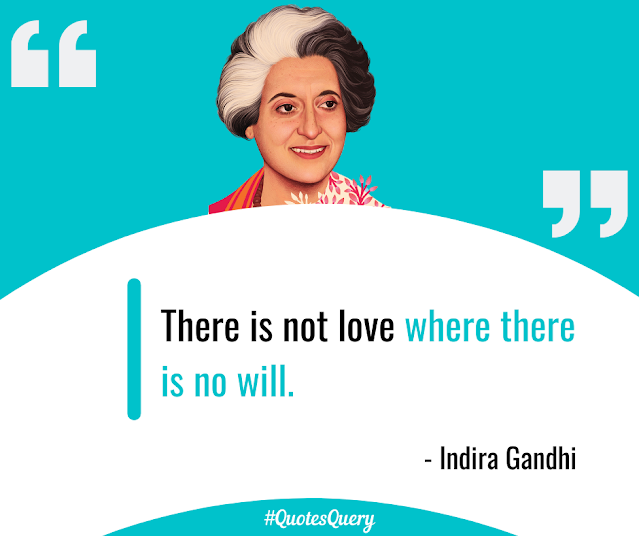Indira Priyadarshini Gandhi was an Indian politician and a central figure of the Indian National Congress. She was the first and, to date, only female prime minister of India. Indira Gandhi was the daughter of Jawaharlal Nehru, the first prime minister of India. She served as prime minister from January 1966 to March 1977 and again from January 1980 until her assassination in October 1984, making her the second-longest-serving Indian prime minister after her father.
During Nehru's premiership from 1947 to
1964, Gandhi was considered a key assistant and accompanied him on his numerous
foreign trips. She was elected President of
the Indian National Congress in 1959. Upon her father's death
in 1964, she was appointed as a member of the Rajya Sabha (upper house) and became a member of Lal Bahadur Shastri's cabinet as Minister of Information and Broadcasting. In the Congress
Party's parliamentary leadership election held in early 1966 (upon the death
of Shastri), she defeated her
rival Morarji Desai to
become leader, and thus succeeded Shastri as Prime Minister of India.
As prime minister, Gandhi was known for
her political intransigency and unprecedented centralisation of power.
She went to war with Pakistan in
support of the independence movement and war of independence in East Pakistan, which resulted in an Indian victory and the
creation of Bangladesh, as well as increasing India's
influence to the point where it became the sole regional power of South Asia. Citing separatist tendencies, and in response to a
call for revolution, Gandhi instituted a state of emergency from
1975 to 1977 where basic civil liberties were suspended and the press was
censored. Widespread atrocities were carried out during the emergency. In
1980, she returned to power after
free and fair elections. After Gandhi ordered military action in the Golden Temple in Operation Blue Star, her
own bodyguards and Sikh nationalists assassinated her on 31 October 1984.
In 1999, Indira Gandhi was named
"Woman of the Millennium" in an online poll organised by the BBC.
In 2020, Gandhi was named by Time magazine among the world's 100 powerful women
who defined the last century.
Family, personal life and outlook
She married Feroze Gandhi at the age of 25, in 1942. Their marriage lasted 18 years until he died of a heart attack in 1960. They had two sons—Rajiv (b. 1944) and Sanjay (b. 1946). Initially, her younger son Sanjay had been her chosen heir but after his death in a flying accident in In June 1980, Gandhi persuaded her reluctant elder son Rajiv to quit his job as a pilot and enter politics in February 1981. Rajiv took office as prime minister following his mother's assassination in 1984; he served until December 1989.
21 Amazing Motivational "Indira Gandhi" Quotes that always give us Goose Bumps when we heard these

Check out the list of quotes from Indra Gandhi
You cannot shake hands with a clenched fist.

There are two kinds of people, those who do the work and those who take the credit. Try to be in the first group; there is less competition there.

Forgiveness is a virtue of the brave.

The power to question is the basis of all human progress.

People tend to forget their duties but remember their rights.

Have a bias toward action - let's see something happen now. You can
break that big plan into small steps and take the first step right away.

You must learn to be still in the midst of activity and to be vibrantly
alive in repose.

My father was a statesman, I am a political woman. My father was a saint. I am not.

A nation's strength ultimately consists in what it can do on its own, and not in what it can borrow from others.

The environmental problems of developing countries are not the side
effects of excessive industrialisation but reflect the inadequacy of
development.

There is no love where there is no will.

I think basically I'm lazy, but I have a housewife's mentality when I go
about my job.

I do not like carving the world into segments; we are one world.

Winning or losing the election is less important than strengthening the country.

There exists no politician in India daring enough to attempt to explain
to the masses that cows can be eaten.

Martyrdom does not end something, it only a beginning.

I am not a person to be pressured - by anybody or any nation.

If I see something dirty or untidy, I have to clean it up.

One must beware of ministers who can do nothing without money, and those
who want to do everything with money.

The people have nothing to fear of me; people have never feared me.

This is why we feel that democracy's important: because democracy allows
you to have small explosions and therefore avoid the bigger explosions.


